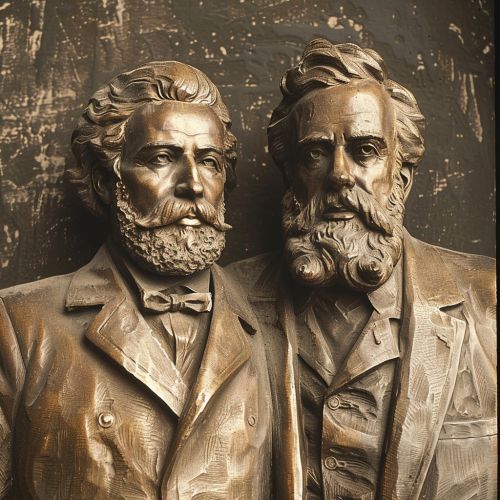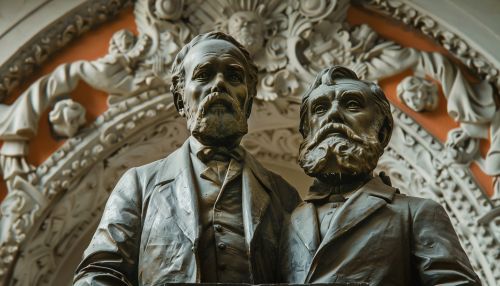Dialectical Materialism
Introduction
Dialectical materialism is a philosophy of science and nature developed in Europe and based on the writings of Karl Marx and Friedrich Engels. Dialectical materialism is an aspect of the broader subject of Marxism, which is a political and economic theory where the concept of class struggle plays a central role in understanding society's allegedly inevitable development from bourgeois oppression under capitalism to a socialist and ultimately classless society.
Historical Background
The term "dialectical materialism" was coined by the 19th-century social theorist Karl Marx. Marx was deeply influenced by the thought of the philosopher Georg Wilhelm Friedrich Hegel, who developed the concept of the dialectic – a method of argument for resolving disagreement. Marx, however, rejected Hegel's idealistic philosophy, which posited that reality is a mental construct, and instead adopted a materialistic view of the world, arguing that the material conditions of society's mode of production fundamentally determine its organization and development.


Theoretical Framework
Dialectical materialism is grounded in the following principles:
Materialism
Materialism is the philosophical belief that the world is made up of material, or physical, things. This stands in contrast to idealism, which holds that the ultimate reality is mental or spiritual in nature. In the context of dialectical materialism, materialism refers to the view that the material conditions of society's mode of production, or the way in which goods are produced and distributed, are the primary influence on human social structures and cultural concepts.
Dialectics
Dialectics is a method of argument that involves some sort of contradictory process between opposing sides. In the dialectical process, a starting constructive idea, known as a thesis, is opposed by a destructive criticism, known as the antithesis. The tension between the two is resolved by means of a synthesis, which is a new idea that reconciles the thesis and antithesis.
Historical Materialism
Historical materialism is an extension of the principles of dialectical materialism to the study of social history. According to this theory, the material conditions of a society's mode of production, or economic base, fundamentally determine its organization and development. Marx posited that social and political change is driven by a dialectical conflict between the ruling class, which controls the means of production, and the working class, which provides the labour for production.
Criticisms and Controversies
Like any philosophical theory, dialectical materialism has been subject to various criticisms. Some critics argue that it is a deterministic theory that overlooks the role of individual agency in shaping social dynamics. Others contend that its focus on economic factors as the primary driver of social change is overly simplistic and ignores other significant influences, such as culture and ideology.
Influence and Legacy
Despite these criticisms, dialectical materialism has had a profound influence on a wide range of disciplines, including sociology, economics, history, and political science. It has served as the theoretical foundation for various social and political movements, most notably communism and various forms of socialism. It continues to be a subject of intense scholarly debate and analysis.
